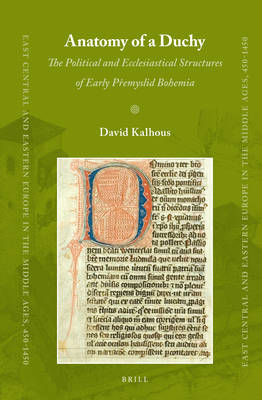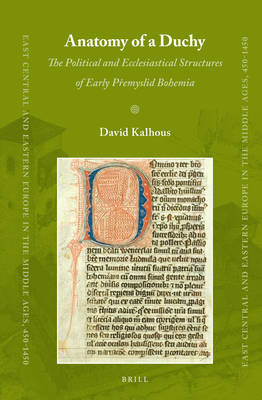
- Afhalen na 1 uur in een winkel met voorraad
- Gratis thuislevering in België vanaf € 30
- Ruim aanbod met 7 miljoen producten
- Afhalen na 1 uur in een winkel met voorraad
- Gratis thuislevering in België vanaf € 30
- Ruim aanbod met 7 miljoen producten
Zoeken
Anatomy of a Duchy
The Political and Ecclesiastical Structures of Early Přemyslid Bohemia
David Kalhous
€ 344,95
+ 689 punten
Omschrijving
In Anatomy of a Duchy David Kalhous analyses military, social and "ideological" factors which may have led to the stabilisation of the P?emyslid regnum in 10th and 11 th century.
Specificaties
Betrokkenen
- Auteur(s):
- Uitgeverij:
Inhoud
- Aantal bladzijden:
- 334
- Taal:
- Engels
- Reeks:
- Reeksnummer:
- nr. 19
Eigenschappen
- Productcode (EAN):
- 9789004229808
- Verschijningsdatum:
- 6/07/2012
- Uitvoering:
- Paperback
- Formaat:
- Trade paperback (VS)
- Afmetingen:
- 160 mm x 241 mm
- Gewicht:
- 703 g

Alleen bij Standaard Boekhandel
+ 689 punten op je klantenkaart van Standaard Boekhandel
Beoordelingen
We publiceren alleen reviews die voldoen aan de voorwaarden voor reviews. Bekijk onze voorwaarden voor reviews.








